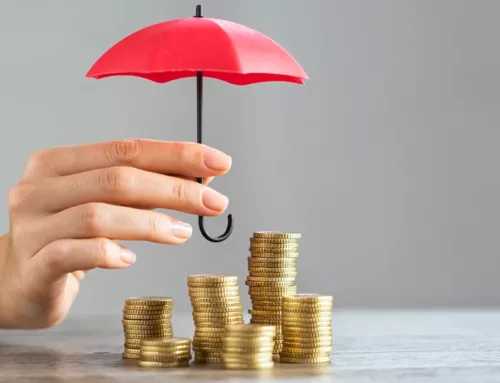How To Use Your RRSPs And TFSA To Invest In Real Estate
An RRSP (Registered Retirement Savings Plan) and TFSA (Tax-Free Savings Account) are exclusively Canadian, and each have their unique investment rules and uses. Most Canadians know these plans exist, and hopefully have funds in one or both of these important account types, but many people don’t know how to use them to invest in real estate.
How To Invest In Real Estate
Since funds put into an RRSP or TFSA have special taxation rules and allow for a range of investments, they’re the preferred method of choice for most Canadians to hold and grow their lifelong savings, be it for retirement, their kids, major purchases, or a rainy-day fund. When actually investing those savings, many take the path of least resistance and only invest in whichever portfolios of stocks and mutual funds their bank advisor recommends. Although these standardized portfolios are decent places for early investors to start, they are generic—not personalized to your specific financial situation—and may not offer the performance, level of control, or range of asset classes to maximize your returns.
With the Canadian real estate market still red hot, and home prices expected to rise another 10.5 per cent in 2022, it’s an excellent idea to leverage your savings to invest in real estate. Let’s look at how you can do that directly through your existing RRSP(s) and TFSA.
Limitations And Opportunities
When initially considering investing in real estate, you may first envision using your RRSP or TFSA savings directly towards a new mortgage on a rental property. However, there are a few reasons why this is not only inadvisable, but impossible:
- With the partial exception of the Home Buyer’s Plan for first-time home buyers (only pertaining to a home to live in), you cannot use an RRSP (or any registered funds) to directly purchase a home or rental property.
- If your priority is growth over time (versus owning a home to live in), there are far superior investment options available as opposed to putting all of your savings into a down payment and a mortgage.
- It is far safer, easier, and more manageable to invest in real estate indirectly instead of becoming a landlord yourself.
Since the savings in your RRSPs and TFSA are usually tax exempt while the funds remain in those plans, that money can’t be used for just anything. A second rental property is considered a prohibited investment, so it’s not an option in this situation.
That doesn’t mean you can’t invest in real estate; from both a logistical and financial standpoint, your best avenue is to invest indirectly.
Indirect Investment
There are a few methods of indirectly investing in real estate, so it’s important to carefully consider which option is right for you:
-
Mortgage Investment Corporations (MICs):
- These unique pools of capital invest in private mortgages, accounting for the majority of private mortgage issuance in Canada. Although they’ve grown in popularity in recent years due to their promise of high returns, they’re also considerably risky by their nature of focusing primarily on mortgage lending.
-
Public Real Estate Investment Trusts (REITs):
- Similar to mutual funds (but for real estate), REITs group together a variety of diverse real estate holdings. Many REITs trade on a stock exchange, with around 35 listed on the Toronto Stock Exchange (TSX), and hundreds more listed on U.S. or global stock exchanges. This makes them a common choice for real estate investors, although they are closely tied to the ups and downs of the stock market, both for better and for worse.
-
Private Real Estate Investment Trusts (REITs):
- Like their publicly traded counterparts, private REITs are an increasingly popular way for investors to benefit from real estate investment without the risk of buying property on one’s own. Instead of going through the stock exchange, private REITs allow potential investors to invest directly through limited partnerships or mutual fund trusts. Since they are untethered from the public market, private REIT units are typically more stable in their valuation and are less affected by systematic and emotional volatility.
These investing avenues are not taxed like regular corporations, making them generally tax-efficient, particularly when paired with an RRSP or TFSA. Each option has its pros and cons, but for most investors, REITs are the recommended way to indirectly invest in real estate.
Public Vs. Private
As mentioned above, a popular option is to invest in publicly traded REITs. These are a fine enough option, although since they’re intrinsically correlated to the stock market, they will rise and fall with other major investments. For this reason, many public REITs may not provide the impact or level of diversification that an investor is seeking from a real estate investment. If exploring this avenue, consider all of your options and ensure you pick a proven REIT that you’re comfortable with.
If liquidity is less of a concern and you’re seeking more consistent long-term gains, exploring private REITs may be ideal. These avoid the costs of listing on a stock exchange and tend to pay higher dividends. When investing through an RRSP or TFSA, private REITs are typically offered to qualified investors via a mutual fund trust or a limited partnership (LP), through an offering memorandum (OM). Be sure to do your due diligence to read and understand the OM, and choose a private REIT that offers transparency, integrity, and a solid long-term strategy.
Due to the unique way REITs are taxed, holding a private REIT investment in a registered tax-free account (such as an RRSP, TFSA, or even an RESP) is a strong option, offering you a diversified portfolio and growth over time without any complicated accounting or taxation concerns.
Growing Your Savings, Tax-Free
Ultimately, any investor should make the choice that is right for them, but for those seeking reliable, long-term, tax-efficient real estate investment that stays resistant to market volatility, a private REIT is an excellent choice. RRSPs and TFSAs in particular offer numerous benefits as channels for investing in real estate.
Equiton’s own funds provide opportunities for any investor to benefit from real estate growth, allowing wealth diversification and protection from the public market without taking on undue risk. To learn more about REITs or investing with Equiton, click the link and Contact us today.




